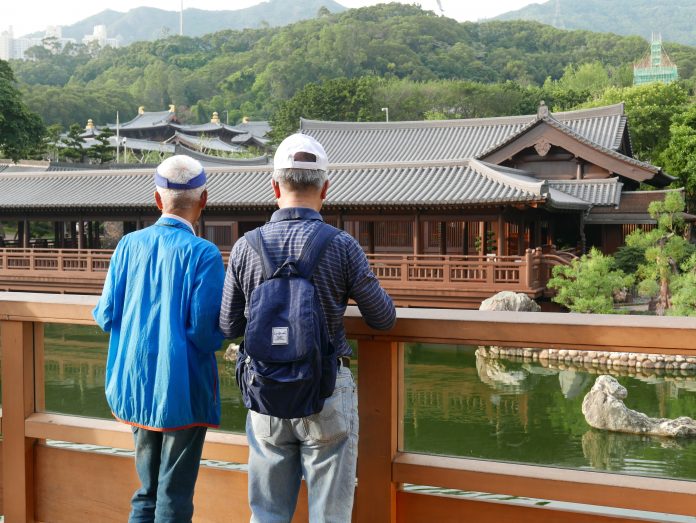Hong Kong’s Elderly Health Service has an increasingly important role to play in improving primary healthcare of the elderly, as this article discovers, with a special focus on recommended exercise as one of the many elements to promote healthy ageing in individuals
The Elderly Health Service in Hong Kong has been running since 1998 and today, it aims to improve the primary healthcare for the elderly, promote healthy living, improve self-care ability and strengthen the area of family support so that disability and illness can be kept to a minimum. (1)
When it comes to ageing, this is an inescapable fact of life. Changes in the mind and body occur, of course, but many symptoms may be due to diseases that can be remedied or treated. As such, the Elderly Health Service urges the elderly and their carers to be knowledgeable about normal ageing, so they can distinguish between disease and normal ageing and, therefore, ensure early and proper treatment for diseases. (2)
The Elderly Health Service’s website hosts a wealth of information about healthy ageing, with very useful sections on a healthy diet, mental health and relationships, for example. Another area they discuss is exercise, which they recommend for the elderly daily to improve both mental and physical health. Of course, this has to be tailored to the ability and target of the individual. For example, we find out that for beginners who have not been doing any exercise, they must begin with an exercise of milder intensity and a shorter duration of around 10 to 15 minutes for every session. This approach reduces the risk of injury caused by progressing too fast and it is also underlined that each workout must start with a warm-up and stretching exercises, and finish with both cool-down and stretching exercises.
Many questions about exercise are answered on the website of the Elderly Health Service, such as “Which type of exercise is the best?”. The response given is that all exercise should be enjoyable, safe and not too strenuous for the elderly. Certainly, it can be safer and more fun to exercise with friends rather than alone. Three main kinds of exercise are highly recommended:
- Aerobic exercise of moderate-intensity;
- Muscle-strengthening exercise and;
- Stretching exercise (and balance exercises).
Also, we find out that when it comes to what exercises are suitable for the elderly, these include walking, swimming, cycling on static bikes and tai chi. Concerning how much exercise an elderly person should do, at least 150 minutes of moderate-intensity aerobic exercise is recommended per week. For instance, one way to do this is 30 minutes daily for at least five days per week. The World Health Organization (WHO) suggests that the elderly should accumulate up to 300 minutes of exercise to gain health benefits if the person is physically able to do so.
Other exercise recommendations include those for patients with chronic diseases, on the condition that their health conditions are stable as assessed by professionals in the field in terms of the relevant safety precautions. For example, diabetic patients can choose different kinds of exercise but they should be equipped with carbohydrate snacks like bread or biscuits in the event they are required. Besides, each exercise session should be confined to 20-60 minutes to avoid hypoglycaemia (a low blood sugar) (3) induced by prolonged exercise. Another good example to look at here is exercises for patients with osteoarthritis of the knees, indeed it is recommended by the Elderly Health Service in Hong Kong that they should choose exercises that impose relatively light loading to the joints, such as walking, swimming or tai chi. Having said that, it is advised that exercises involving walking up and downstairs, slopes or deep squatting must be avoided. (4)
In conclusion, exercise is just one of many ways to encourage healthy ageing. Others include aspects of self-care (5), such as massage, foot care, coping with fatigue and assistive devices for daily living. You can also read in detail about elements of home safety (6), for example, advice on preventing falls or even how to be prepared for winter. There is also a section on smoking and drinking (7), that includes information, such as the harm passive smoking does on an individual, as well as how alcohol can harm your health. Exercise is a really good example of positive activity that the elderly benefit from and it certainly encourages them to enjoy their later years and live a fruitful life. (8)
References
- https://www.elderly.gov.hk/english/about_us/background.html
- https://www.elderly.gov.hk/english/healthy_ageing/normal_ageing/ageing.html
- https://www.nhs.uk/conditions/low-blood-sugar-hypoglycaemia/
- https://www.elderly.gov.hk/english/healthy_ageing/exe_leisure_travel/create_your_own_exercise_program.html
- https://www.elderly.gov.hk/english/healthy_ageing/selfcare/index.html
- https://www.elderly.gov.hk/english/healthy_ageing/home_safety/index.html
- https://www.elderly.gov.hk/english/healthy_ageing/smoking_drinking/index.html
- https://www.elderly.gov.hk/eindex.html











